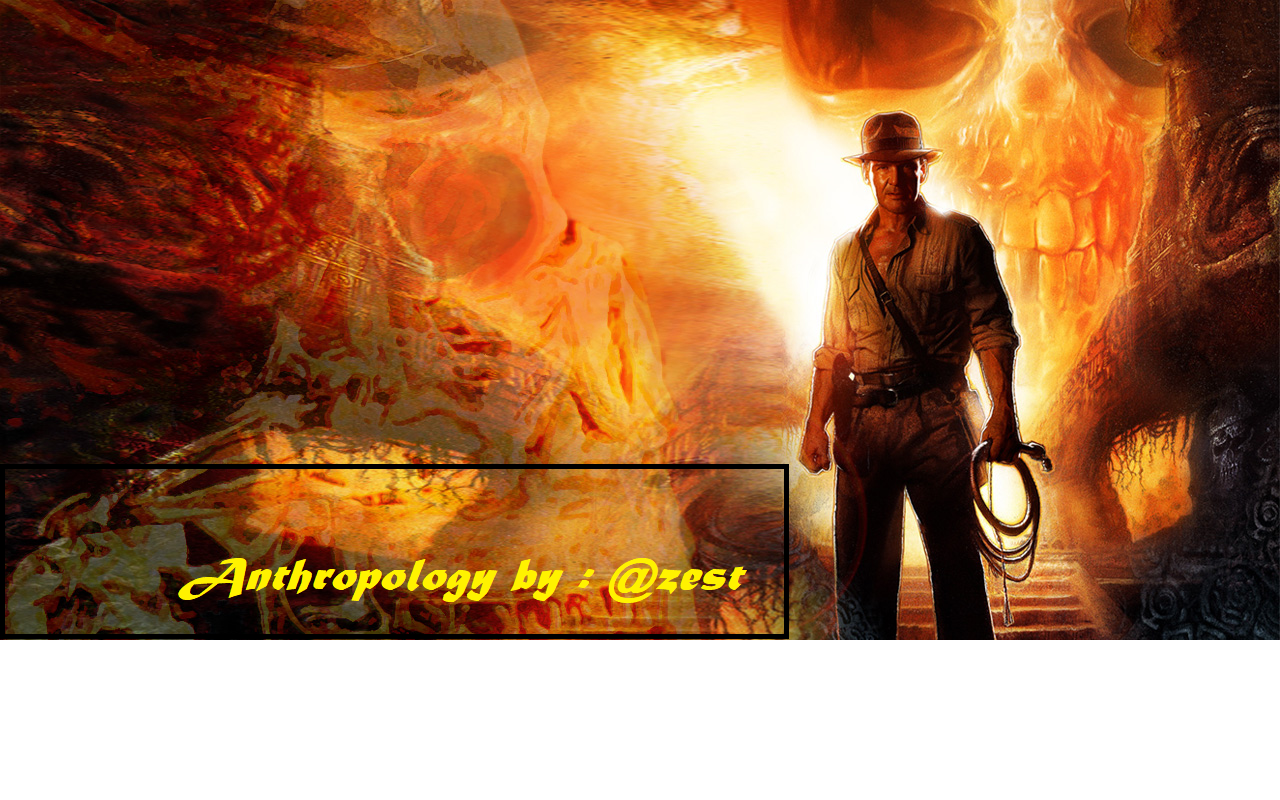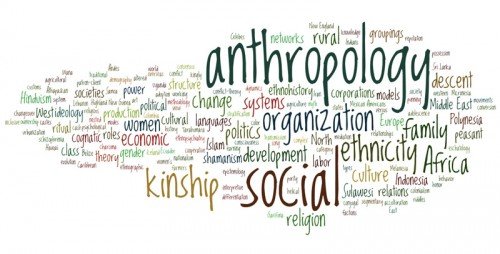
Anthropology : Introduction
"Anthropology is the study of ourselves and others and appreciating our own and others people's ways of being and doing"
Given that Anthropology is characterised by curiosity about people and strives to "make sense" of human behaviour, the questions raised by these issues are among those that Anthropologists seek to answer. In more general terms, Anthropology concerns itself with an even wider and more general variety of questions, all of them in one way or other related to the human condition and the human experience.
For example: What are our similarities? What makes us distinctly human? Despite sharing common human traits, why are we so very different? Why do people differ in appearance, that is, physically and biologically? Why do people have different patterns of behaviour? Why have communities and societies throughout the world developed different or similar ways of addressing the need to adapt to the environment? Of organising their relations with others? Of organising their leadership and governance systems? Of relating to, or placating, the supernatural or supreme being(s) or the spiritual realm? Of expressing themselves artistically?
The basic question which anthropology has always tried to answer is: How can we explain the uniformity and diversity of humans and human behaviour - that is, the human experience?
Anthropologists have set out to develop a better understanding of diverse societies in different contexts by spending time with people in their particular settings. This form of direct contact with people in their "world" in order to learn more about them has been termed "fieldwork" by anthropologists. But this "field" involves a great diversity of settings.
For example: a rural village community in France; a factory; a San settlement in the Kalahari Desert; an international corporation or organisation; a complex urban neighbourhood; a pottery-making village; a medical facility or psychiatric ward; the Tsigane ("Gypsies") in the Sion valley of Switzerland; and so on..
Anthropologists thus take themselves out comfort zone of their own familiar surroundings to experience other people and their activities in an unfamiliar context. You did the same thing when you moved to a new flat in another building; when you arrived at your first or a new job; when you moved to a house in a new neighbourhood; when you travelled to a foreign country and were confronted with rules and regulations.
Ten years ago Richard Carlson's little book, Don't sweat the small stuff ... and it's all small stuff, had already sold more than 8 million copies worldwide. The book provides guidelines for dealing with life's problems and outlines strategies to respond to life more gracefully. The 100 brief chapters that make up the book include a chapter entitled Become an anthropologist.
Why did Carlson include anthropology in a self-help book?
This is what he says:
Anthropology a science dealing with man (we would say Human's) and his (their) origins. (However), I'll conveniently redefine anthropology as "being interested", without judgement, in the way other people choose to live and behave. This strategy is geared toward developing your compassion, as well as a way of becoming more patient. Beyond that, however, being interested in the way other people act is a way of replacing judgements with loving-kindness. When you are genuinely curious about the way someone reacts or the way they feel about something, it's unlikely that you will also be annoyed. In this way, becoming an anthropologist is way of becoming less frustrated by the actions of others. When someone acts in a way that seems strange to you, rather than reacting in your usual way, such as, "I can't believe they would do that, instead say something to yourself like "I see, that must be the way she sees things in her world. Very interesting!" In order for this strategy to help you, you have to be genuine. There's a fine line between being "interested" and being arrogant, as if secretly you believe your own way is better. (Carlson 1997:111-112)
In this part of my blog I intend to actively involve you in a process that will encourage you to begin to think like an anthropologist - to do this you need to be curious and not take anything for granted. By exposing you to other people's, often very different ways of arranging their lives, we shall try to help develop a mind that is open to perceiving and understanding others and yourself.
Thanks to media in general and particularly Indiana Jones movies and television programmes such as National Geographic Channel and BBC Knowledge, anthropology (also confused with archaeology) still often seems to conjure up images of mummies' tombs, treks through jungles, pith-helmet wearing colonial explorers discovering "lost tribes", adventures in remote and exotic places and the dietary preferences of cannibals.
Anthropologists agree that their chosen field of study is exciting, that they do experience people and places first hand that others do not usually have the opportunity to become familiar with, that they do become deeply and even emotionally involved in an endeavour to understand the human condition. However, the conventional perceptions "out there" of anthropology have probably done more to obscure the true nature of anthropology as a profession than to contribute to a better understanding of the discipline.
The term anthropology comes from the Greek anthropos for "man/human" and logos for "study"
Anthropology thus produces information (data), knowledge and understanding of what makes people different from one another and what makes them similar, and looks at what all humans beings have in common.
Images are linked to their sources in their description and references are stated within the text.
Thank you for reading
Thank you @foundation for this amazing SteemSTEM gif





